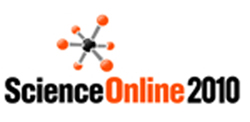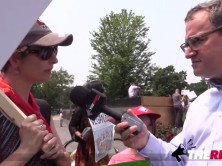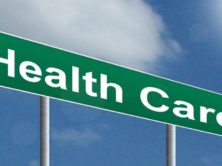
Notes on fact checking science stories emerge from the ScienceOnline conference.
Last weekend saw a gathering of scientists and journalists for the fourth annual ScienceOnline conference, with several workshops focused on online science journalism. One participant, Janet D. Stemwedel, who writes the blog Adventures in Ethics and Science, posted a rundown of her tweeted notes from a panel on fact checking science stories Sunday. It looks like the discussion hit on some good tips.
According to the description of the panel on the conference website, “Much of the science that goes out to the general public through books, newspapers, blogs and many other sources is not professionally fact checked. As a result, much of the public’s understanding of science is based on factual errors. This discussion will focus on what scientists and journalists can do to fix that problem, and the importance of playing a pro-active role in the process.”
Stemwedel’s highlights from the “Getting the Science Right” panel–led by Rebecca Skloot, Sheril Kirshenbaum, and David Dobbs–include insights about relative quality of checking between newspapers and magazines, discussions about how to check quotes with a source, and how much of a story to share back with them, finding external data to verify a source’s memory, and how “common knowledge” on the Internet can be a big source of errors.
She lists her tweets on the subject, (denoted by “#scio10”)
Journos & scientists trained v differently to talk abt same subject; what do you send back to source for verification (& why)? #scio10
Some sources’ memories may be suspect (finding external data to fill in more accurate acct can take lots of sleuthing) #scio10
Identifying “common knowledge” (on internet) that’s the result of misunderstandings, miscommunication #scio10
Tempting to go beyond the findings & what scientist would see as supported; fact checking keeps u honest abt what’s YOUR read #scio10
Repetition w/out proper fact checking entrenches “knowledge” that’s wrong #scio1
If less fact checking, more obligation to print corrections (but doesn’t mean pubs live up to this duty) #scio10
Check out her full list of tweeted notes on the meeting here.
Science journalism especially benefits from fact checking directly with sources, but also requires a deep review of published material, and often a second or third opinion on facts. With fewer resources at journalism powerhouses for fact checking, and more journalists working freelance without a team of checkers behind them, these discussions are all the more relevant.
Facts aren’t everything, however. Stemwedel quotes David Dobbs, “You can get all the facts right and still get the entire story wrong.”






